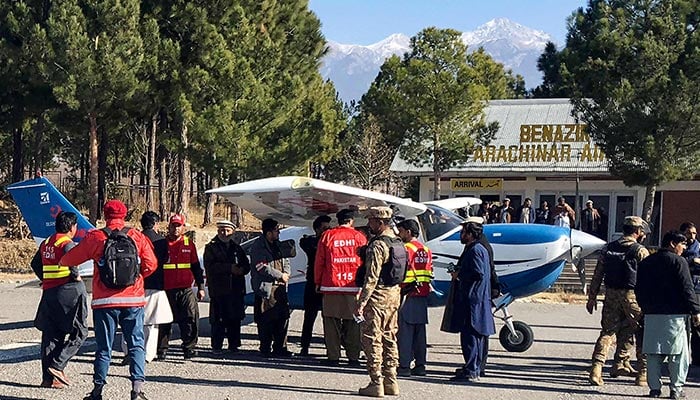POLITICS & POLICY MAKING

Kurram District, which has been isolated from the rest of the country due to violent tribal clashes since November, is facing an escalating humanitarian crisis. The violence, which has claimed over 100 lives, has caused severe disruptions, including the closure of all major roads, such as the Parachinar-Peshawar highway, since November 21. The attack on a vehicular convoy in the Bagan area on that date resulted in the deaths of at least 50 people and sparked intense clashes.
Despite the blockade, the federal government managed to deliver one tonne of medication to Parachinar by helicopter on December 27. The National Disaster Management Authority (NDMA) also transported patients in the same helicopters to Islamabad. However, the ongoing violence and blockade have had devastating consequences on the local population. Local officials and tribal elders have been unable to reach a lasting agreement through several jirgas held in Kohat.
The medical crisis in the region is dire, with the death toll of children rising. Former Minister Turi confirmed that 37 children have died at the district headquarters hospital (DHQ) alone. In total, 128 children have died due to a lack of medical supplies in the past 85 days, according to local civil society reports. Hospitals in the area are in disrepair, schools are closed, and basic necessities like petrol and gas are unavailable.
Turi highlighted that heart patients and mothers in labor have also succumbed to the lack of resources, calling the situation "horrible." He added, "Eighty-five days is a long time, and the situation has gotten very intense."
The unrest has also sparked protests across Karachi. The Majlis Wahdat-i-Muslimeen (MWM), a religiopolitical party, has been staging sit-ins across the city, blocking major roads in solidarity with the victims of Kurram. Party leader Allama Hasan Zafar Naqvi warned that the protests would continue, and that if sit-ins were called across Sindh, the government would not be able to prevent them.




